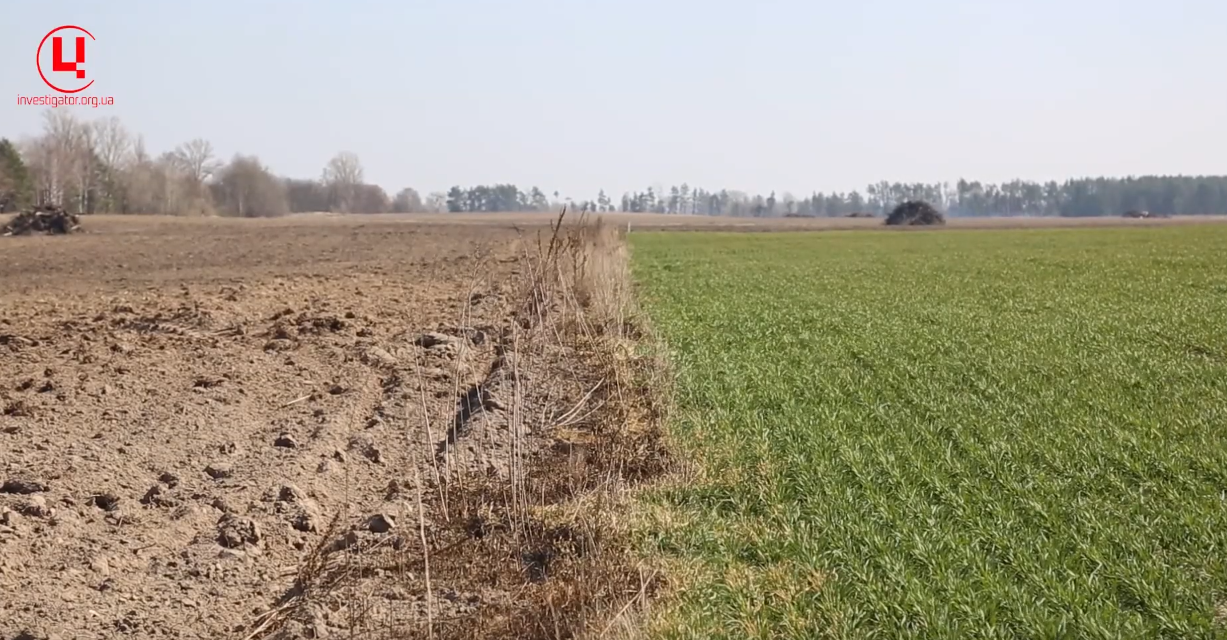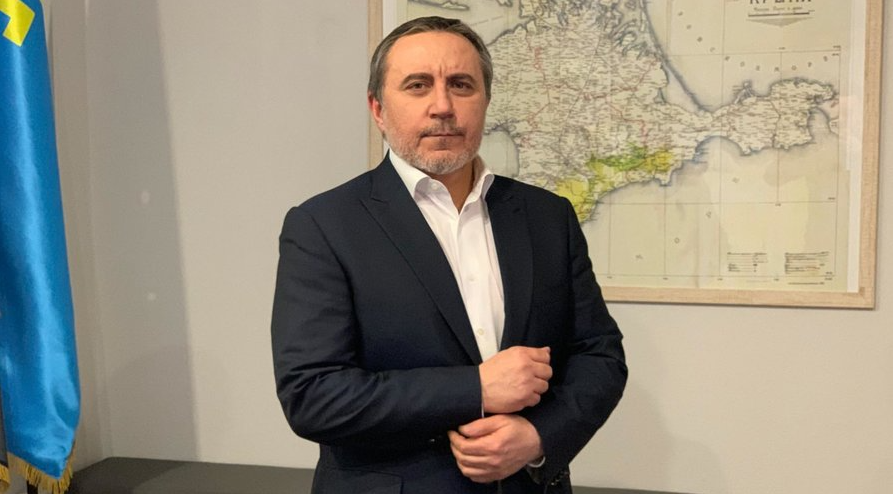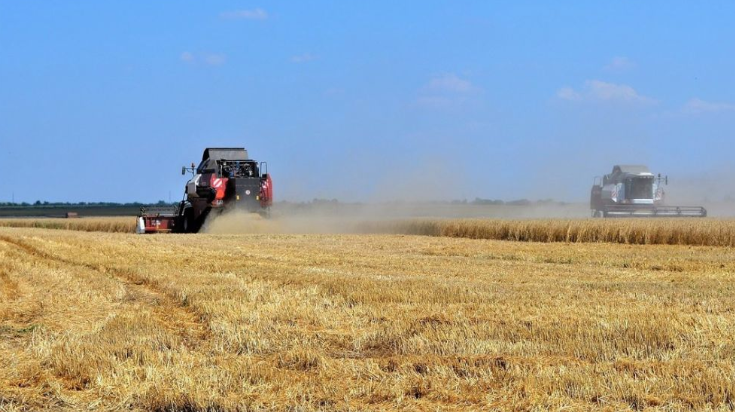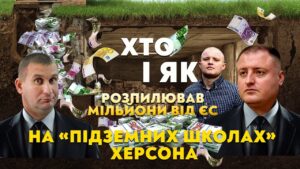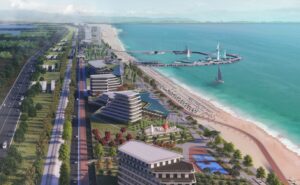Looting of Ukrainian business and property in occupied Crimea acquired tsunami scale. Expropriation of land assets (from land plots with immovable property objects to thousands hectares of arable land) reminds the crime committed by the Russian empire since the first annexation of Crimea in XVIII century. De-landing and forced Russification caused emigration of aboriginal people of Crimean Tatars. It is obvious that Russian colonizers pursue greed and colonization purposes today.
Now we observe the next wave of expropriation of Crimean lands by the Russian Federation and its collaborators in Crimean occupation government and “State Council”. First bandit-style seizure of Ukrainian state and private enterprises, with their lands, equipment, grain and property, has been conducted during first months of the Russian occupation of Crimea. Agricultural enterprises have been robbed by so-called “self-defense of Crimea”, created by Russian “head of Crimea” Aksyonov and his colleague Mihail Sheremet.
Russian occupation authorities tried to present illegal seizure of largest Ukrainian wineries (NPAO “Masandra” and state company “Novy svit”) as “nationalization”, though it contradicted even the legislation of the Russian Federation. Finally, these assets have been expropriated by entities of so-called Putin’s bank.
On March 20, 2020, Vladimir Putin issues the decree forbidding foreigners to own land plots in near shore districts of Crimea. As an outcome, people without Russian citizenship and legal entities not registered in Russia were deprived of their legitimate land property in all districts bordering Black and Azov Seas (only three Crimean districts do not have direct access to these seas). Besides that, lands of cooperatives, even if their members had Russian passports, were expropriated “for the needs of the Ministry of Defense of the Russian Federation”. In accordance with the data of the Regional Center for Human Rights, almost four thousand people became victims of Russian full scale illegal expropriation of land plots in Crimea and Sevastopol.
As “Head of Crimean State Council” Volodymyr Konstantynov reported, 2 600 objects of movable and immovable property, owned by 192 physical persons and legal entities, were already “nationalized” in Crimea. Agricultural assets of “unfriendly” Ukrainian citizens and their companies are the lion’s share of confiscated assets. Crimean occupants plan to sell them to Russians.
Konstantynov described one stolen agricultural enterprise in the following way: “There are many large and prospective projects among nationalized assets. For example, let us look at “Karakash agro”. It has 84 objects in Rozdolne, Saky and Pervomaiske districts. I am sure that our Russian businessmen will be interested and that they will invest and not just pump money out of these assets”.
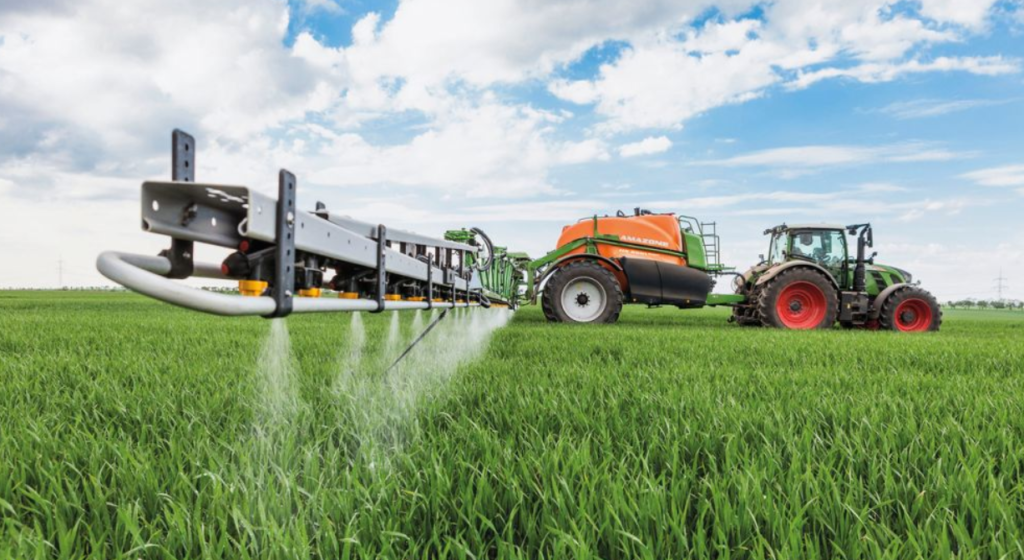
Sprinkling of fields by LLC “Karakash agro” in Pervomaisk district of Crimea, 2023. Photo: crimea-news.com
Besides “Karakash agro”, Russian expropriation also covered four large Ukrainian agricultural enterprises: LLC “Landkom Krym”, farmer enterprises “Karakash” and “E-Emin” (they have their “clones” with the same name in the Russian State Register of Legal Entities) and LLC “Lit agro”, registered in the Russian Federation during Russian occupation of Crimea. These companies had the same owners and they resumed their work under the Russian occupation of peninsula.
Role of Lenur Islyamov
Russian expropriators justified “nationalization” of these enterprises by reference to its owners. They argued that though their nominal owners were citizens of Lithuania, it was Crimean Tatar Lenur Islyamov who de facto owned them. He is businessman, owner of transport companies and Crimean Tatar TV channel ATP. In 2015, TV channel has been among co-organizers of Civic trade blockade of Crimea. Islyamov created non-governmental organization named after Noman Chelebidzhykhan, recognized by the Russian Federation as extremist organization. Russian authorities sentenced Lenur Islyamov to 18 years of imprisonment for creating this organization.
The Center of Journalist Investigations asked Lenur Islyamov whether he had any relations to above mentioned agricultural enterprises in Crimea.
“Bullshit. I had never had any agricultural assets. I have owned car business and business about transportation of people and cargo. The rest (media, advertisement, ICom) was just “toys”, as answered Lenur Islyamov.
We asked him whether he knew Lithuanian citizen Antanas Mikalauskas, the owner and manager of expropriated companies, and conducted business with him.
Lenur Islyamov answered:
“No, I have never met him. I have registered all my businesses on myself. I did not transfer my property to other people and did not do it with citizens of Baltic States. It is not my style. Would it be mine, I would recognize it”.
He also refuted information published by Ukrainian online media “Anticor” that he persuaded Mikalauskas and investment banker Aivar Abromavichus to make investments into his agricultural holding in Crimea and supplied trucks and heavy tractors. As media suggested, he took those tractors from the Crimean peninsula and gave them to battalion named after Noman Chelebidzhykhan.
“Bullshit. I have never had any tractors”, as tells Islyamov.
Who are owners of expropriated agricultural companies?
The ownership of expropriated Ukrainian agricultural enterprises has not changed in the Ukrainian State Register of Legal Entities during the Russian occupation of Crimea.
On the opposite, owners of their “clones” in the Russian State Register of Legal Entities changed several times. It seems that they tried to protect them from illegal expropriation. Crimean collaborators and Russian citizens were among them. Companies demonstrated loyalty towards occupation authorities and received subsidies from the occupation “Ministry of Agriculture of Crimea” and “Crimean state fund to support entrepreneurship”.
However, on August 31, 2023, “temporary administration”, headed by collaborator Chubar Vitalii Ivanovych, has been introduced in all above mentioned enterprises. It has been done before the decision of “State Council” to “nationalize” them.
Private agricultural enterprise “Karakash” was founded in 2002 in Chekhove village in Rozdolne district. It has been named after the surname of its director – Fikret Karakash, local resident. But the founder of the enterprise is Lithuanian citizen Antanas Mikalauskas. “Private Agricultural Enterprise “Karakash” has been introduced into the Russian State Register of Legal Entities in 2015. Its founder is the Russian “clone” of another Ukrainian company – “Karakash agro”.
LLC “Karakash agro” was registered at the same address in Chekhove village in 2010. Its founders are two Lithuanian companies – ETime and Comestata.
In Russia, “Karakash agro” was registered in January 2015. Its first founder has been Closed Joint Stock Company “ETime”. In May 2018, it has been replaced by Moscow LLC “Symbol”. Now the solely owner of the company is Russian citizen Yakubovsky Leonid Nikolayevich.
In 2023, there was an attempt to bankrupt “Karakash agro” despite its profitability – in 2022, the agricultural company demonstrated 44,5 million Rubles of profits. In a couple of months, bankruptcy case was closed.
Crimean occupation authorities “nationalized” over 660 hectares of land, production facilities and administrative buildings of “Karakash agro”.
By the way, Ukrainian citizen Fikret Karakash became Russian collaborator. After the Russian annexation of Crimea, he joined Putin’s political party “United Russia”. In 2014 and 2019, he was elected to Serebryanske village council of Rozdolne district. He is the member of so-called “Public council” of Rozdolne district.
In 2018, “Symbol” co-founded another agricultural company – “Lit agro”, with legal address in Crimean city of Krasnoperekopsk. It has been created two years before. Antanas Mikalauskas has been also among its founders.
Russian occupants expropriated over 600 hectares of land of “Lit agro” in Krasnoperekopsk district.
Farmer enterprise “E-Emin” was registered in 2009 in Chernove village, Pervomaisk district. Its founder and manager is Emirasanov Emin Enverovych. Russian “clone” of the enterprise with name “E-Emin” appeared in 2016. In 2019, Agafonova Kateryna Sergiivna was appointed as its new manager (Russian taxpayer code 910219129133 was issued by the Russian taxation authorities in Simferopol).
Russian occupation authorities expropriated over 150 land plots of “E-Emin” (total area- almost 830 hectares) in Krasnoperekopsk, Rozdolne, Pervomaisk and Saky districts.
Agricultural company “Landkom Krym” is the largest expropriated company. It is located in Gryshyne village of Pervomaisk district. In 2022, its profits reached 100 million Rubles. Its expropriated property includes over one thousand hectares of land, warehouses, cattle and pig farms, repairing shops, garages, administrative buildings etc. Konstantynov personally visited Gryshyne before its expropriation. He pretended to inspect the construction of cultural club and kindergarten.

Volodymyr Konstantynov (center) during his visit to Gryshyne village. Photo from the website of “State Council of Crimea”
In 2008, LLC “Landkom Krym” was founded by Cypriote company “Josen holdings limited”. This enterprise has been among 17 Ukrainian companies of group Landkom International which harvested grain on its own or leased lands in Ukraine. In 2011, Landkom merged with Swedish agricultural company Alpcot Agro but the owner of “Landkom Krym” did not change.
The same Cypriote company was indicated as founder of LLC “Landkom Krym” registered in the Russian State Register of Legal Entities in 2014. Then, Moscow LLC “Viktoria replaced Cypriots. In 2017, Moscow consulting company “Kaik”, owned by Yakubovsky Leonid Nikolayevich, became new owner of Russian “clone” of “Landkom Krym”. As it has been written above, he controls assets of “Karakash agro” and “Lit agro” through company “Symbol”.
Who is Yakubovsky? He is the graduate of A.F. Mozhaysky’s Military-Space Academy. He defended PhD thesis and taught at the Academy. He has been IT specialist and project manager in Saint Petersburg group of companies “Korus consulting”. Russian “Sberbank” bought digital platform for e-documents EDI, developed by Yakubovsky, and “Korus consulting SNG”, one company from the group. It has been sanctioned by USA and Ukraine.
Thus, Yakubovsky is Russian citizen and known businessman, with businesses in Moscow and Saint Petersburg. However, it has not stopped Crimean “expropriators” from stealing his high profit agricultural enterprises with large land bank in Crimea.
On November 30, 2023, companies “Kaik” and “Symbol” addressed Russian “Arbitration Court of Crimea” with the requirement to cancel decree of the Russian “Council of Ministries of Crimea” # 1479-p/DSP from 28.08.2023. They also asked to ban “temporary administration” to take any actions about property of companies, to use their banking accounts, sign agreements. They asked to arrest financial resources of companies. The “Court” did not satisfy these claims.
Tags: Antanas Mikalauskas, Volodymyr Konstantynov, land, Karakash agro, Crimea, Lenur Islyamov, Crimean “nationalization”, expropriation

